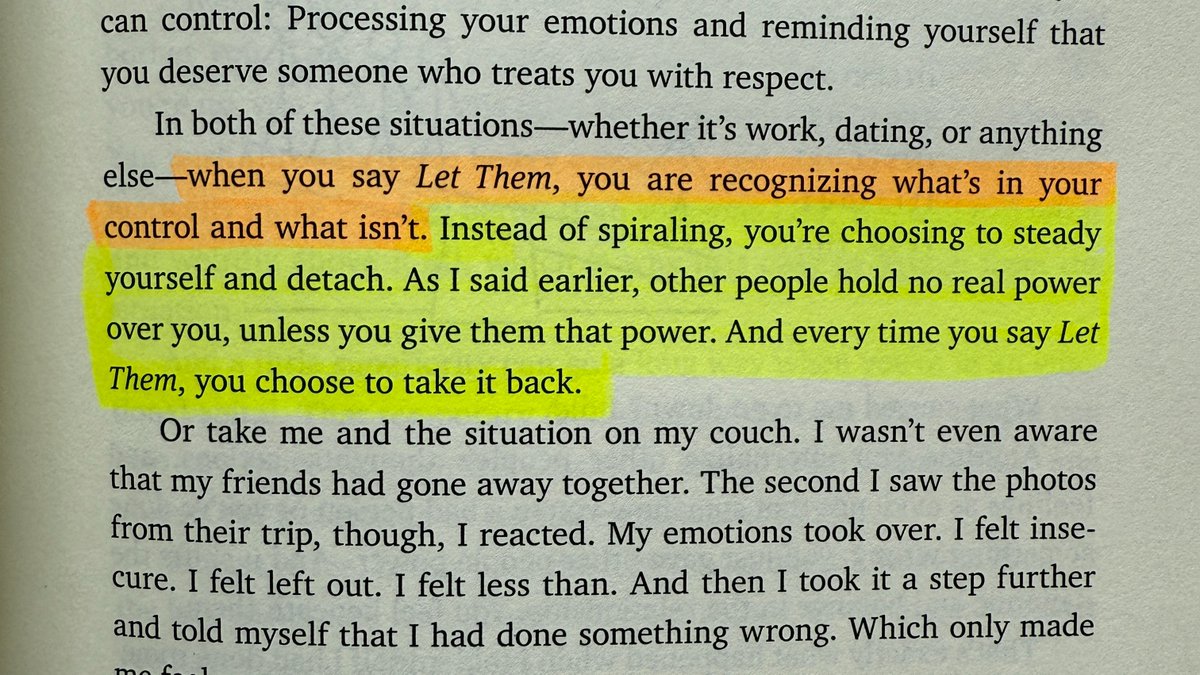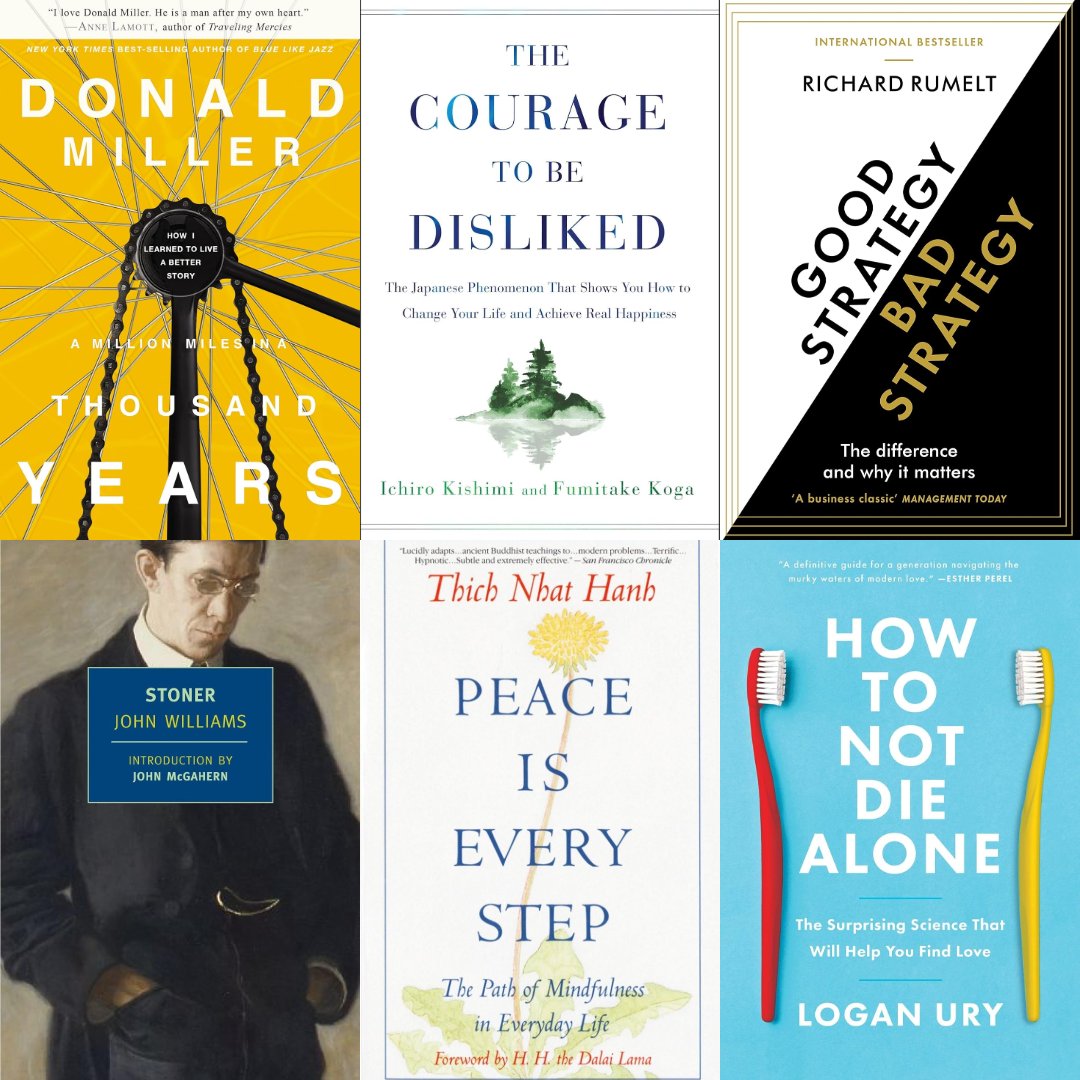This is @ShaneAParrish.
He's a NYT bestselling author who reads 100+ books a year and has a library of 4,000+ books.
Here are 21 helpful reading tips from him:
1) Speed-reading is bullshit. Getting the rough gist and absorbing the lessons are two different things. Confuse them at your peril.
2) Finishing the book is optional. You should start a lot of books and only finish a few of them.
3) There are no rules when it comes to choosing books. We don’t have to read bestsellers, or classics, or books everyone else raves about.
4) Book summary services miss the point. A lot of companies charge ridiculous prices for access to vague summaries bearing only the faintest resemblance to anything in the book. Summaries can be a useful jumping-off point to explore your curiosity, but you cannot learn from them the way you can from the original text.
5) Fancy apps and tools are not needed. A notebook, index cards, and a pen will do just fine.
6) Your first goal when reading is to not be a passive consumer of information. You want to get better, learn something, and develop your critical thinking skills
7) Quality matters more than quantity. If you read one book a month but fully appreciate and absorb it, you’ll be better off than someone who skims half the library without paying attention.
8) There’s an advantage to be gained from reading things other people are not reading, because you will gain knowledge and insights that not everyone else has.
9) The more interesting and relevant we find a book, the more likely we are to remember its contents in the future.
10) You have to have some idea of what you want to get from the book. If you don’t read with intention, what you read will never stick.
11) Periodically ask yourself questions like: What can I learn from this story? What in this book parallels or pertains to my own challenges? What are the differences? How might I apply some of the insights I’m picking up?
12) Authors often read hundreds of books for each one they write, so a well-researched book should have a bibliography full of interesting texts. After you’ve read the book, peruse the bibliography again and make a note of any books you want to read next.
13) The best technique for notetaking is whichever one works for you and is easy to stick to.
14) Stay focused: Decide that for the time you will be reading, you will focus on the book and nothing else. No quick Twitter checks. No emails. No cell phone. No TV. No staring into midair.
15) Go crazy with marginalia. The more you write, the more active your mind will be while reading. If you can’t mark up the book, do it on paper and note the page numbers.
16) Rereading good books is of tremendous importance if we want to form lasting memories of the contents. Repetition is crucial for building memories.
17) The first time you write in a book can be unnerving, but in the long term, it leads to a rich understanding and a sense of connection with the author.
18) Take the time to make a plan and decide how to implement key lessons from the book.
19) Teaching others is a powerful way to embed information in your mind. Upon completing a book, grab the nearest (willing) person and tell them about what you have learned.
20) Skim a lot of books. Read a few. Immediately re-read the best ones twice.
21) The goal is not to read as many books as possible. The goal is to gain as much wisdom as you can.
He's a NYT bestselling author who reads 100+ books a year and has a library of 4,000+ books.
Here are 21 helpful reading tips from him:
1) Speed-reading is bullshit. Getting the rough gist and absorbing the lessons are two different things. Confuse them at your peril.
2) Finishing the book is optional. You should start a lot of books and only finish a few of them.
3) There are no rules when it comes to choosing books. We don’t have to read bestsellers, or classics, or books everyone else raves about.
4) Book summary services miss the point. A lot of companies charge ridiculous prices for access to vague summaries bearing only the faintest resemblance to anything in the book. Summaries can be a useful jumping-off point to explore your curiosity, but you cannot learn from them the way you can from the original text.
5) Fancy apps and tools are not needed. A notebook, index cards, and a pen will do just fine.
6) Your first goal when reading is to not be a passive consumer of information. You want to get better, learn something, and develop your critical thinking skills
7) Quality matters more than quantity. If you read one book a month but fully appreciate and absorb it, you’ll be better off than someone who skims half the library without paying attention.
8) There’s an advantage to be gained from reading things other people are not reading, because you will gain knowledge and insights that not everyone else has.
9) The more interesting and relevant we find a book, the more likely we are to remember its contents in the future.
10) You have to have some idea of what you want to get from the book. If you don’t read with intention, what you read will never stick.
11) Periodically ask yourself questions like: What can I learn from this story? What in this book parallels or pertains to my own challenges? What are the differences? How might I apply some of the insights I’m picking up?
12) Authors often read hundreds of books for each one they write, so a well-researched book should have a bibliography full of interesting texts. After you’ve read the book, peruse the bibliography again and make a note of any books you want to read next.
13) The best technique for notetaking is whichever one works for you and is easy to stick to.
14) Stay focused: Decide that for the time you will be reading, you will focus on the book and nothing else. No quick Twitter checks. No emails. No cell phone. No TV. No staring into midair.
15) Go crazy with marginalia. The more you write, the more active your mind will be while reading. If you can’t mark up the book, do it on paper and note the page numbers.
16) Rereading good books is of tremendous importance if we want to form lasting memories of the contents. Repetition is crucial for building memories.
17) The first time you write in a book can be unnerving, but in the long term, it leads to a rich understanding and a sense of connection with the author.
18) Take the time to make a plan and decide how to implement key lessons from the book.
19) Teaching others is a powerful way to embed information in your mind. Upon completing a book, grab the nearest (willing) person and tell them about what you have learned.
20) Skim a lot of books. Read a few. Immediately re-read the best ones twice.
21) The goal is not to read as many books as possible. The goal is to gain as much wisdom as you can.

Source: fs.blog/remember-books/
• • •
Missing some Tweet in this thread? You can try to
force a refresh
















